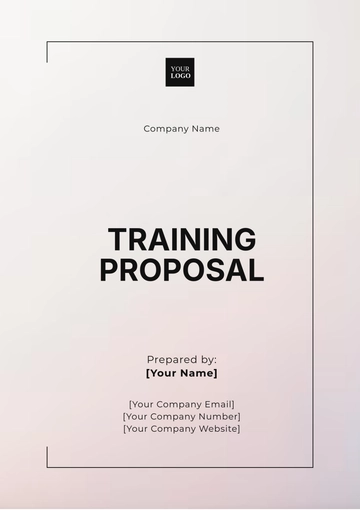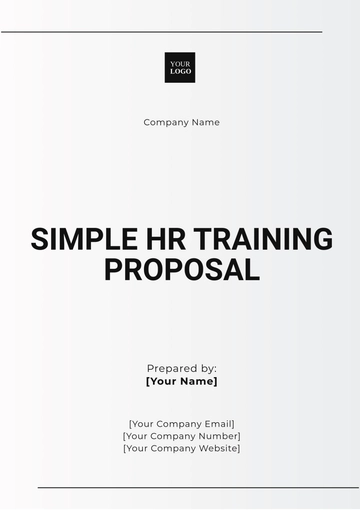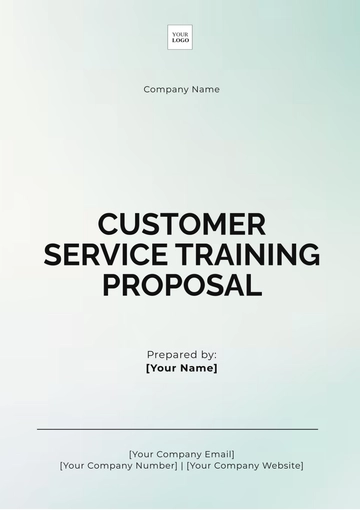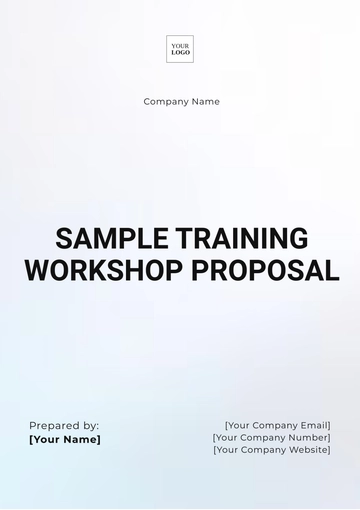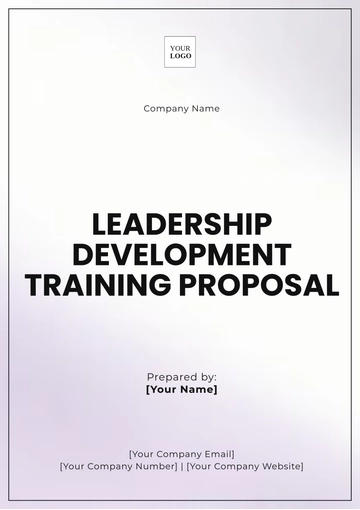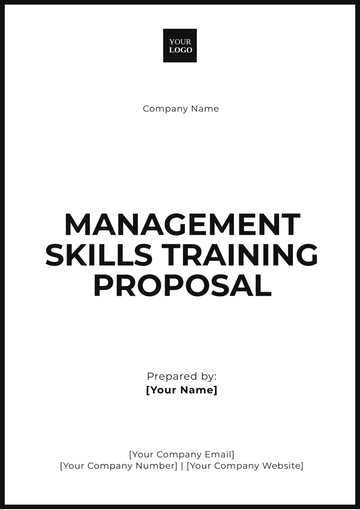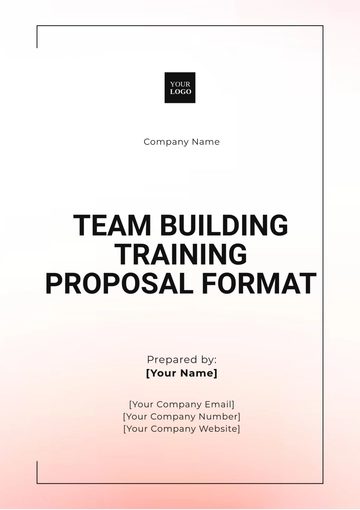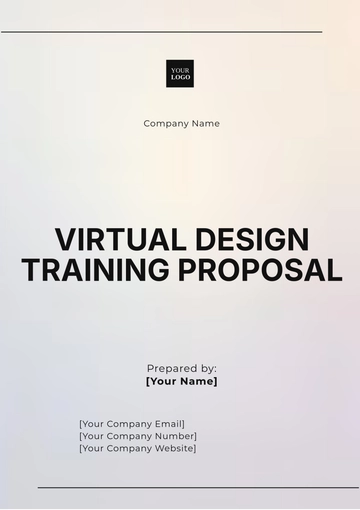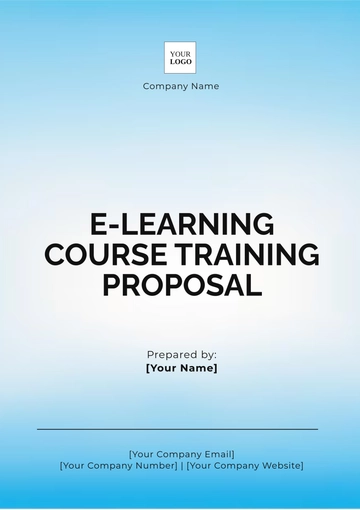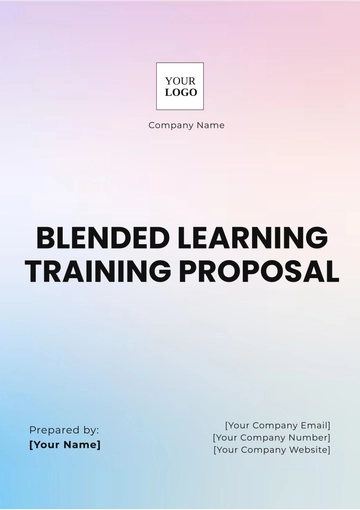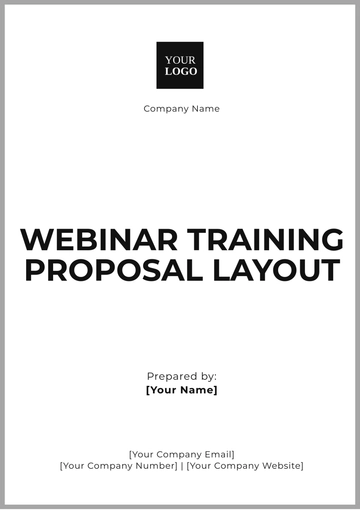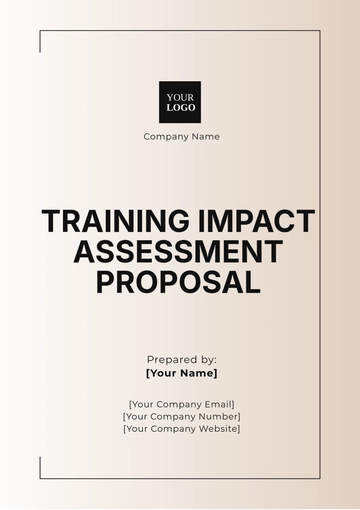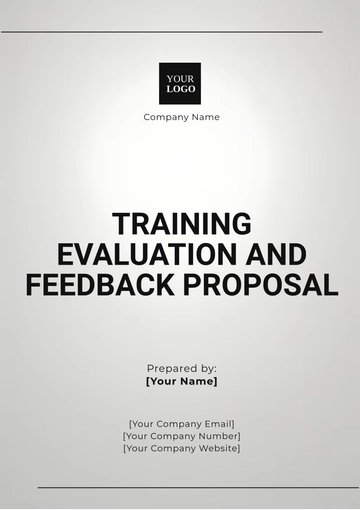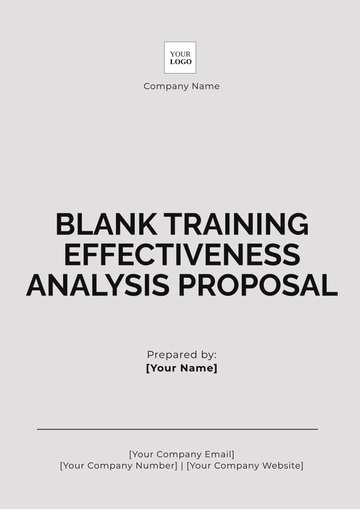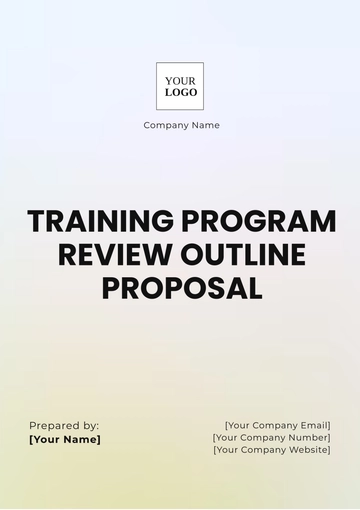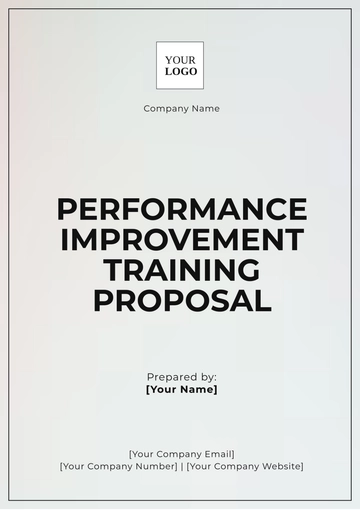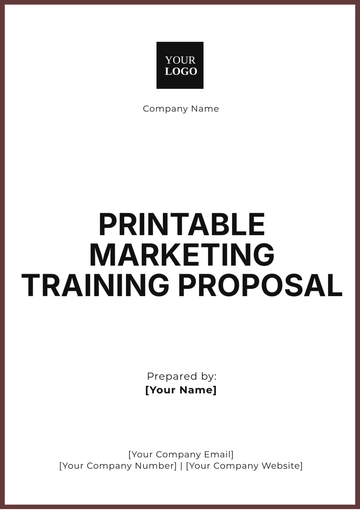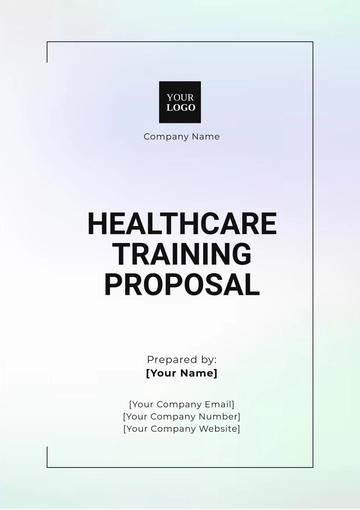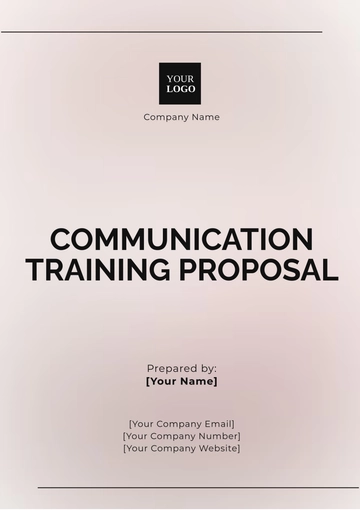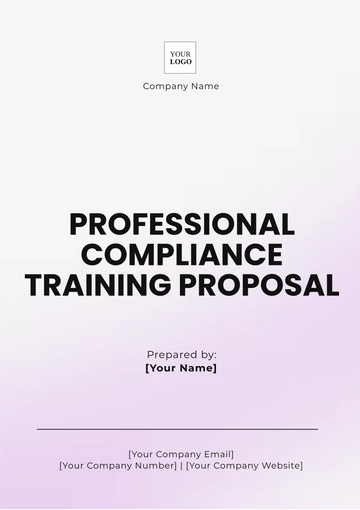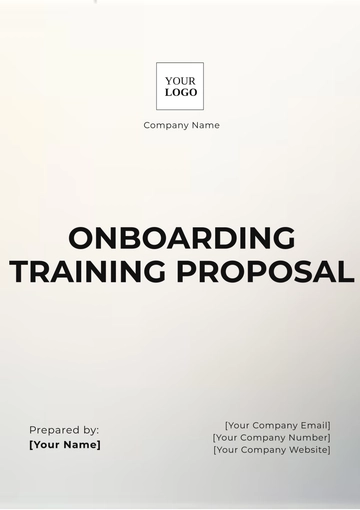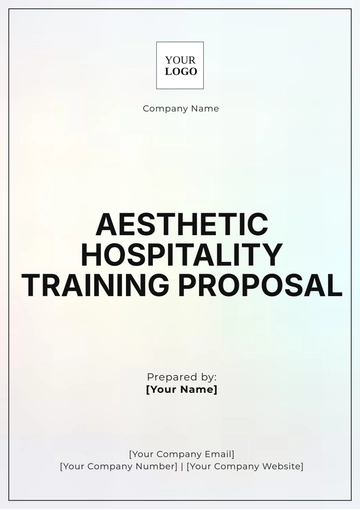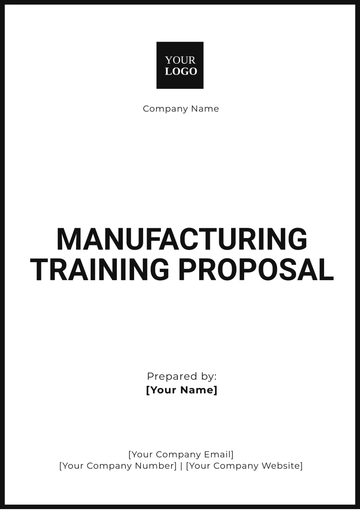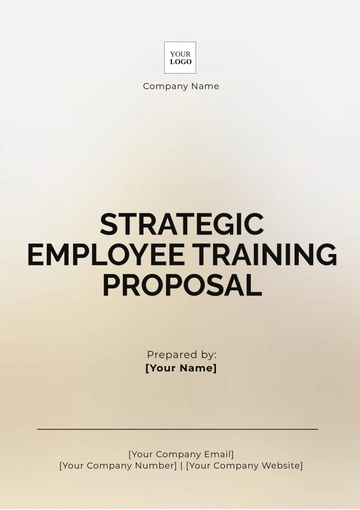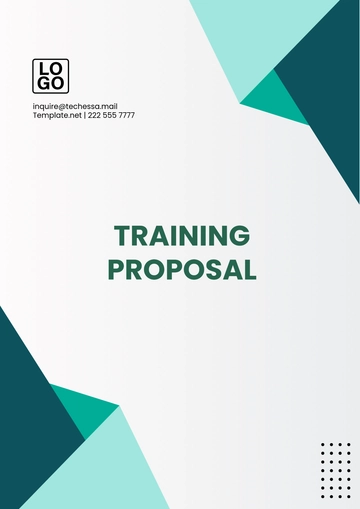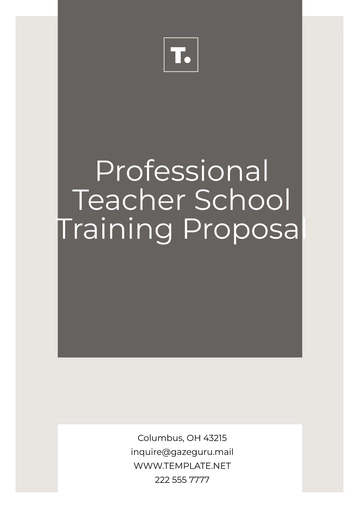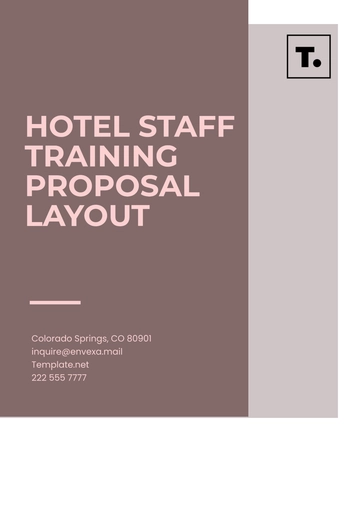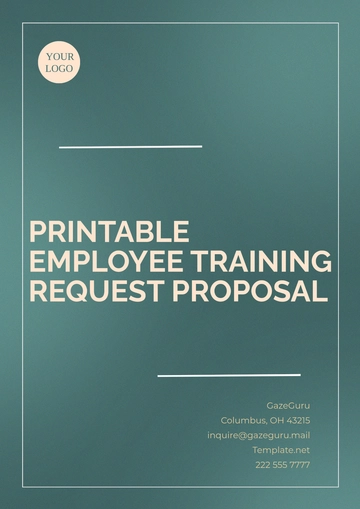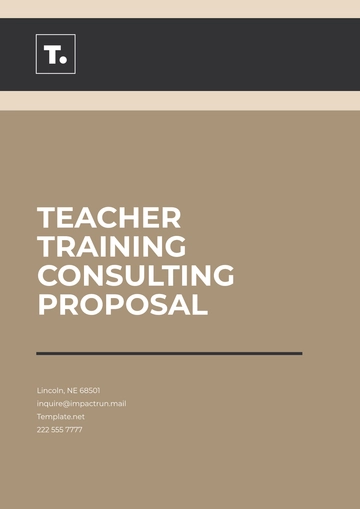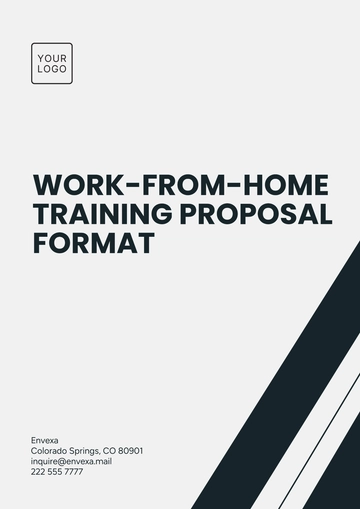Free Hotel Training Proposal
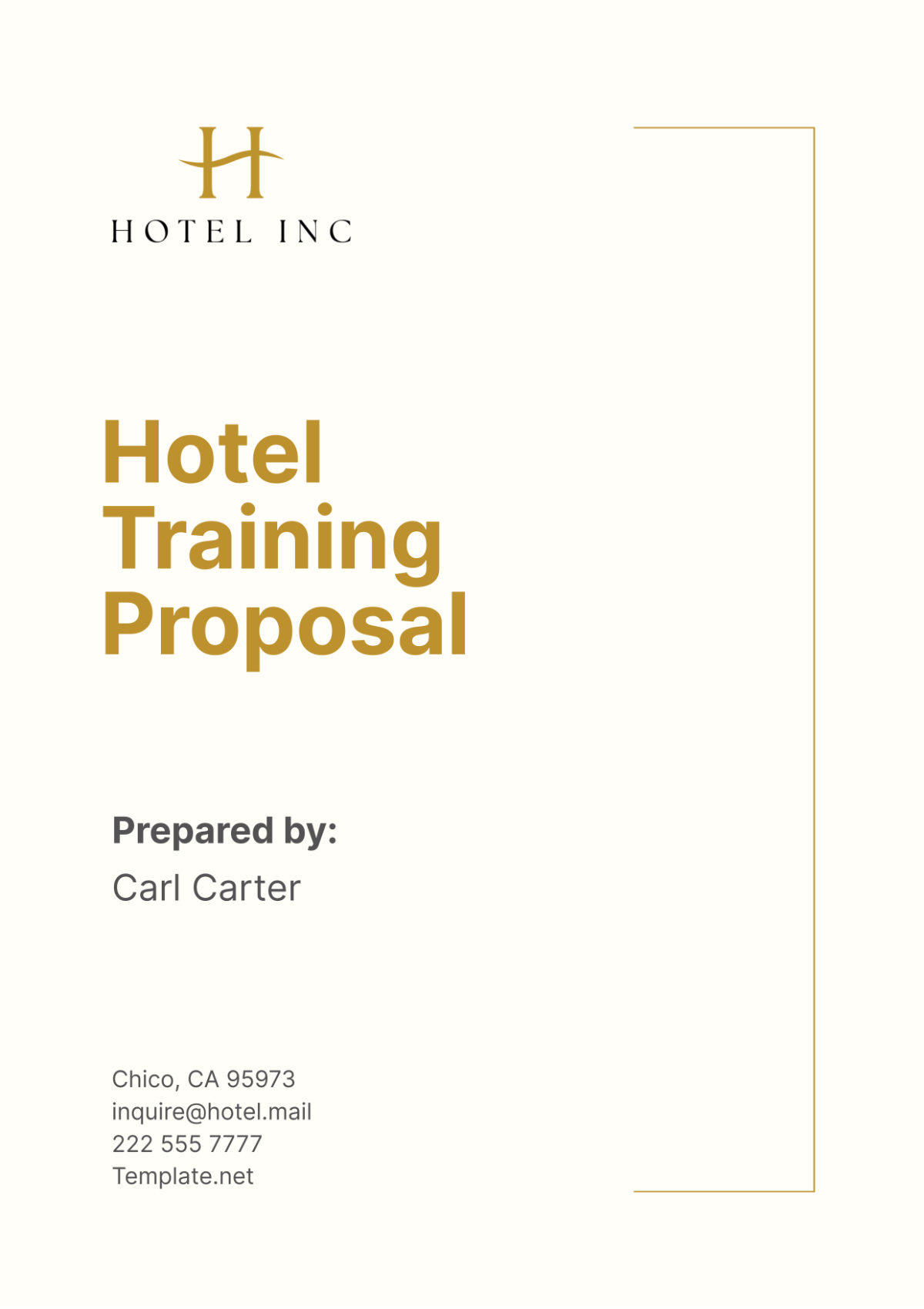
I. Executive Summary
A. Introduction
In the dynamic and competitive landscape of the hospitality industry, the quality of service provided by hotel staff plays a pivotal role in attracting and retaining guests. [Your Company Name] understands the importance of delivering exceptional service consistently. We are pleased to present this comprehensive training proposal tailored to the specific needs of [Your Partner Company Name]. Our goal is to equip your staff with the skills, knowledge, and mindset necessary to exceed guest expectations and drive operational excellence.
B. Objectives
Enhance Guest Experience: At the heart of our training program is a commitment to elevating the guest experience. We aim to instill in your staff a deep understanding of the significance of each guest interaction and empower them to deliver personalized and memorable experiences.
Improve Operational Efficiency: Efficient operations are essential for the smooth functioning of any hotel. Through targeted training, we seek to optimize processes, streamline workflows, and minimize wastage, thereby enhancing overall efficiency and productivity.
Increase Staff Competence: A well-trained and competent staff is the backbone of any successful hotel. Our program is designed to equip your team with the skills, knowledge, and confidence to handle a diverse range of situations with professionalism and poise.
Boost Employee Morale: Investing in employee development is key to fostering a positive work culture and driving employee engagement. By providing opportunities for growth and advancement, we aim to enhance morale, motivation, and job satisfaction among your staff.
II. Training Program Overview
A. Training Modules
Customer Service Excellence
Duration: 16 hours
Content: Our customer service module covers a range of topics, including the importance of first impressions, effective communication techniques, strategies for handling guest complaints and feedback, and personalized service approaches tailored to individual guest preferences.
Housekeeping Standards
Duration: 12 hours
Content: This module focuses on maintaining high standards of cleanliness and hygiene throughout the hotel. Topics include cleaning techniques and standards, proper use of cleaning equipment and chemicals, room preparation and inspection protocols, and adherence to health and safety regulations.
Front Desk Operations
Duration: 20 hours
Content: Front desk staff play a critical role in shaping guests' first impressions of the hotel. Our training covers check-in and check-out procedures, reservation management, billing and payment processes, and best practices for providing exceptional guest service.
Food and Beverage Service
Duration: 18 hours
Content: Dining experiences are an integral part of the guest journey. This module equips staff with the knowledge and skills required to deliver outstanding food and beverage service, including menu knowledge and presentation, serving techniques and etiquette, accommodation of dietary restrictions and allergies, and effective upselling and cross-selling strategies.
Leadership and Management
Duration: 24 hours
Content: Effective leadership is essential for driving team performance and achieving organizational goals. Our leadership and management module covers topics such as team leadership strategies, conflict resolution techniques, time management and delegation skills, and performance evaluation and feedback mechanisms.
B. Training Methodology
Classroom Training: Our interactive classroom sessions provide participants with the opportunity to engage in discussions, share experiences, and learn from industry experts and seasoned trainers.
Hands-On Training: Practical exercises and role-playing scenarios allow participants to apply theoretical knowledge in real-world situations, enhancing retention and skill development.
E-Learning Modules: Our online learning platform offers participants the flexibility to access training materials and resources at their convenience, including instructional videos, quizzes, and self-assessment modules.
Workshops and Seminars: In-depth workshops and seminars delve into specific topics in greater detail, providing participants with a deeper understanding of key concepts and best practices.
Guest Speaker Sessions: Invited guest speakers from the hospitality industry share their insights, expertise, and experiences, inspiring participants and providing valuable perspectives on industry trends and innovations.
III. Training Schedule
A. Timeline
Module | Duration | Start Date | End Date |
|---|---|---|---|
Customer Service Excellence | 16 hours | July 1, 2050 | July 2, 2050 |
Housekeeping Standards | 12 hours | July 3, 2050 | July 4, 2050 |
Front Desk Operations | 20 hours | July 5, 2050 | July 7, 2050 |
Food and Beverage Service | 18 hours | July 8, 2050 | July 10, 2050 |
Leadership and Management | 24 hours | July 11, 2050 | July 13, 2050 |
B. Detailed Daily Schedule
Time | Activity | Description |
|---|---|---|
08:00-09:00 | Introduction and Overview | Each day begins with a briefing on the agenda and learning objectives for the day. Participants will have the opportunity to ask questions and clarify any doubts before starting the session. |
09:00-12:00 | Module Session | Interactive lectures and discussions led by experienced trainers. Participants will engage in group activities, case studies, and role-playing exercises to reinforce learning and practical application of concepts. |
12:00-13:00 | Lunch Break | Participants will have time to recharge and refuel with a catered lunch provided by [Your Company Name]. This break also serves as an opportunity for networking and informal discussions among participants. |
13:00-15:00 | Hands-On Training | Practical exercises and role-playing scenarios designed to simulate real-world situations. Participants will apply the knowledge and skills gained during the morning session, receiving feedback and guidance from trainers. |
15:00-17:00 | Group Discussion and Feedback | Group discussions and feedback sessions provide participants with the opportunity to reflect on their learning experiences, share insights, and ask questions. Trainers will facilitate discussions and address any concerns raised by participants. |
17:00-18:00 | Q&A and Recap | The day concludes with a question-and-answer session and a recap of the day's key takeaways. Trainers will summarize the main points covered during the session and provide guidance on additional resources for further learning. |
C. Trainer Profiles
Trainer Name | Qualifications | Experience |
|---|---|---|
[Trainer Name 1] | Certified Hospitality Trainer (CHT) | 15 years in hotel management and training. |
[Trainer Name 2] | Master's in Hospitality Management | 10 years in guest service training. |
[Trainer Name 3] | Certified Housekeeping Manager (CHM) | 12 years in housekeeping management. |
IV. Training Materials
A. Training Manuals
Comprehensive manuals covering each training module will be provided to all participants. These manuals serve as valuable reference guides, containing detailed information, best practices, case studies, and self-assessment quizzes to reinforce learning and facilitate ongoing skill development.
B. Online Resources
Participants will have access to an online learning portal hosted by [Your Company Name]. This portal will contain a wealth of resources, including instructional videos, articles, webinars, and discussion forums, enabling participants to supplement their learning and engage in self-paced study.
C. Evaluation Tools
Pre-Training Assessment: Prior to the commencement of the training program, participants will undergo a pre-training assessment to gauge their existing knowledge, skills, and areas for improvement. This assessment will help trainers tailor the training program to meet the specific needs and learning objectives of each participant.
Post-Training Assessment: Upon completion of the training program, participants will undergo a post-training assessment to measure their knowledge retention, skill acquisition, and overall competency. This assessment will enable trainers to evaluate the effectiveness of the training program and identify any areas that may require additional reinforcement or support.
Feedback Forms: Feedback forms will be distributed to participants at the conclusion of each training module and at the end of the program. These forms will solicit feedback on various aspects of the training, including the quality of instruction, relevance of content, training materials, and overall training experience. The feedback collected will be used to assess participant satisfaction, identify areas for improvement, and inform future training initiatives.
V. Costs and Budget
A. Cost Breakdown
Item | Cost | Description |
|---|---|---|
Training Materials | [$8,000] | Manuals, handouts, and online resources. |
Instructor Fees | [$4,000] | Fees for professional trainers and guest speakers. |
Venue Rental | [$4,000] | Costs for renting training venues. |
Refreshments | [$1,000] | Lunch and coffee breaks for participants. |
Miscellaneous | [$3,000] | Additional expenses such as travel and logistics. |
B. Total Cost
The total estimated cost for the entire training program is [$20,000]. This includes all training materials, instructor fees, venue rental, refreshments, and miscellaneous expenses. However, it's important to note that the actual cost may vary depending on factors such as the number of participants, venue location, and specific requirements of [Your Partner Company Name].
VI. Implementation Plan
A. Preparation Phase
Needs Analysis: Our team will conduct a thorough needs analysis in collaboration with [Your Partner Company Name] to identify the specific training requirements and objectives.
Customization: Based on the needs analysis, we will customize the training modules and content to address the unique challenges and priorities of [Your Partner Company Name].
Scheduling: A detailed training schedule will be developed, taking into account factors such as participant availability, venue availability, and program duration.
B. Execution Phase
Kick-off Meeting: A kick-off meeting will be organized to introduce the training program, clarify expectations, and outline the roles and responsibilities of all stakeholders.
Training Delivery: The training sessions will be conducted as per the agreed-upon schedule, with experienced trainers leading each module and facilitating interactive learning experiences.
Monitoring and Support: Throughout the training program, our team will provide ongoing support, monitor participant progress, and address any issues or concerns that may arise.
C. Evaluation Phase
Post-Training Assessment: Following the completion of the training program, participants will undergo a post-training assessment to evaluate their learning outcomes and competency levels.
Feedback Collection: Feedback will be collected from participants through surveys and interviews to gather insights into their training experience, satisfaction levels, and suggestions for improvement.
Final Report: A comprehensive report summarizing the training outcomes, participant feedback, and recommendations for future training initiatives will be prepared and presented to [Your Partner Company Name].
VII. Expected Outcomes
A. Enhanced Guest Satisfaction
By equipping staff with the skills and knowledge necessary to deliver exceptional service, we anticipate a significant improvement in guest satisfaction levels. Guests will receive personalized attention, timely assistance, and memorable experiences that exceed their expectations, leading to increased loyalty and positive word-of-mouth referrals.
B. Improved Operational Efficiency
Streamlined processes, optimized workflows, and enhanced staff competencies will contribute to improved operational efficiency across all departments. Reduced turnaround times, minimized errors, and better resource utilization will result in cost savings and increased profitability for [Your Partner Company Name].
C. Higher Employee Engagement
Investing in employee development and empowerment fosters a sense of ownership, pride, and commitment among staff members. By providing opportunities for growth, recognition, and advancement, we anticipate higher levels of employee engagement, morale, and job satisfaction, leading to reduced turnover rates and a more cohesive and motivated workforce.
D. Measurable Performance Improvements
Post-training assessments and performance metrics will provide tangible evidence of the impact of the training program on staff performance and service quality. Key performance indicators such as guest satisfaction scores, employee retention rates, and operational metrics will be tracked over time to measure progress and identify areas for ongoing improvement and refinement.
VIII. Conclusion
[Your Company Name] is committed to delivering a comprehensive training program that will empower [Your Partner Company Name] to achieve new heights in service excellence, operational efficiency, and employee engagement. We believe that by investing in the professional development of your staff, we can drive tangible results and create lasting value for your organization. We look forward to partnering with you on this journey and contributing to the success of your hotel business.
For further information or to discuss this proposal in detail, please contact us at [Your Company Email] or [Your Company Number]. We are here to support you every step of the way and ensure the success of your training initiative.
- 100% Customizable, free editor
- Access 1 Million+ Templates, photo’s & graphics
- Download or share as a template
- Click and replace photos, graphics, text, backgrounds
- Resize, crop, AI write & more
- Access advanced editor
Invest in employee development with the Hotel Training Proposal Template from Template.net. This customizable document outlines proposed training initiatives to enhance skills and knowledge among your hotel staff. Editable in our AI Editor Tool, tailor the proposal to meet your hotel's training needs and objectives.
You may also like
- Business Proposal
- Research Proposal
- Proposal Request
- Project Proposal
- Grant Proposal
- Photography Proposal
- Job Proposal
- Budget Proposal
- Marketing Proposal
- Branding Proposal
- Advertising Proposal
- Sales Proposal
- Startup Proposal
- Event Proposal
- Creative Proposal
- Restaurant Proposal
- Blank Proposal
- One Page Proposal
- Proposal Report
- IT Proposal
- Non Profit Proposal
- Training Proposal
- Construction Proposal
- School Proposal
- Cleaning Proposal
- Contract Proposal
- HR Proposal
- Travel Agency Proposal
- Small Business Proposal
- Investment Proposal
- Bid Proposal
- Retail Business Proposal
- Sponsorship Proposal
- Academic Proposal
- Partnership Proposal
- Work Proposal
- Agency Proposal
- University Proposal
- Accounting Proposal
- Real Estate Proposal
- Hotel Proposal
- Product Proposal
- Advertising Agency Proposal
- Development Proposal
- Loan Proposal
- Website Proposal
- Nursing Home Proposal
- Financial Proposal
- Salon Proposal
- Freelancer Proposal
- Funding Proposal
- Work from Home Proposal
- Company Proposal
- Consulting Proposal
- Educational Proposal
- Construction Bid Proposal
- Interior Design Proposal
- New Product Proposal
- Sports Proposal
- Corporate Proposal
- Food Proposal
- Property Proposal
- Maintenance Proposal
- Purchase Proposal
- Rental Proposal
- Recruitment Proposal
- Social Media Proposal
- Travel Proposal
- Trip Proposal
- Software Proposal
- Conference Proposal
- Graphic Design Proposal
- Law Firm Proposal
- Medical Proposal
- Music Proposal
- Pricing Proposal
- SEO Proposal
- Strategy Proposal
- Technical Proposal
- Coaching Proposal
- Ecommerce Proposal
- Fundraising Proposal
- Landscaping Proposal
- Charity Proposal
- Contractor Proposal
- Exhibition Proposal
- Art Proposal
- Mobile Proposal
- Equipment Proposal
- Student Proposal
- Engineering Proposal
- Business Proposal
